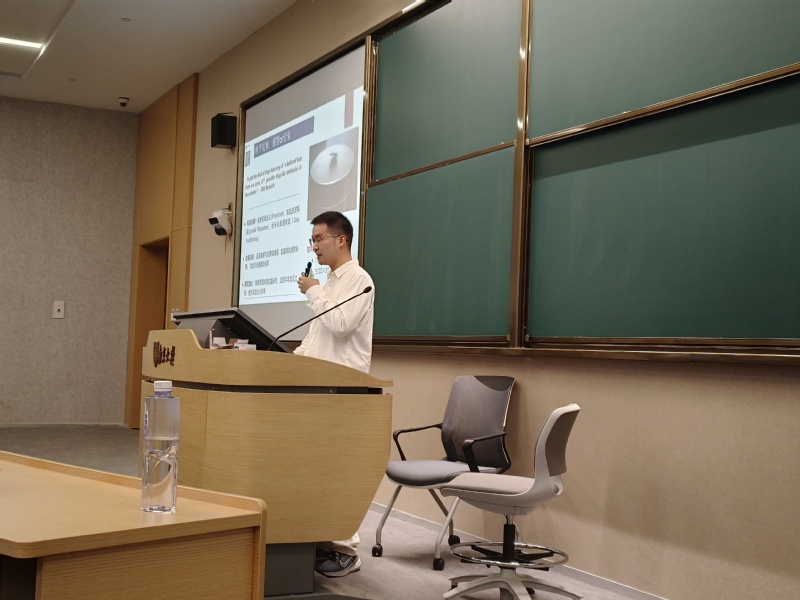At 10:30 am on November 25th, the School of Intelligent Science and Technology invited Wang Qi, a research associate at the School of Science of National University of Defense Technology, to give an academic report entitled Thoughts and Practice on Large-Scale Generative Simulation Artificial Intelligence.
Abstract:
Recent advances have brought a new focus on generative artificial intelligence (GenAI), which paves promising paths to exploring the creation of texts, images, videos, or other contents, rather than simply performing discriminative learning tasks. GenAI's emergence, e.g., the large model, has changed the landscape of deep learning research, influenced individuals’ work and life, holding tremendous potential to reshape robotics research, national governance, and life sciences. This talk nominates large-scale generative simulation artificial intelligence (LS-GenAI) as the next hotspot for GenAI to connect. We will share some thoughts and recent practice on enabling LS-GenAI. Specifically, the identifiable simulation systems or scenarios need to be generated with a few observations, and the decision-making modules can afford fast adaptation utility in time-sensitive scenarios, e.g., autonomous driving or decision-making in defense. The primary goals of LS-GenAI are to assist in meaningful experimental design and enable fast adaptation of learned skills. Achieving these will ultimately enrich the utilities of GenAI in a broader range of real-world scenarios.
Presenter:
Wang Qi, an associate researcher at the School of Science of National University of Defense Technology, is engaged in research on stochastic optimization and intelligent game theory. He received his Ph.D. from Professor Max Welling and Dr. Herke van Hoof. He has long been a reviewer for top AI conferences and was invited to organize the NeurIPS EcoRL2021 Workshop.The first author has published multiple articles in ICML, NeurIPS, and ICLR, covering conditional generative models, meta-reinforcement learning, robust optimization, and approximate inference algorithms, and won the 2023 Excellent Doctoral Dissertation Award for Multi-Agent Systems in China.At present, he has presided over three national, provincial and ministerial scientific research projects, focusing on the research framework of generative simulation intelligence, and was invited to give academic reports in well-known research institutions such as the Institute of Mathematics and Systems of the Chinese Academy of Sciences, the Institute of Theoretical Physics of the Chinese Academy of Sciences, Tsinghua University, Nankai University, Shandong University, etc.

.

